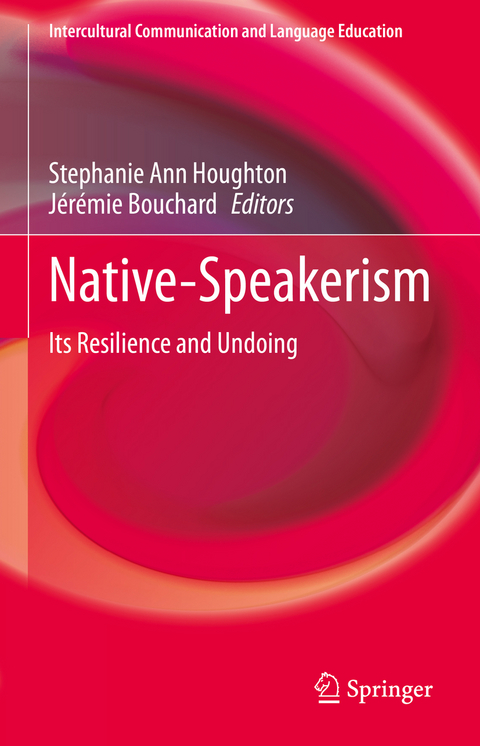
Native-Speakerism
Springer Verlag, Singapore
978-981-15-5670-8 (ISBN)
Stephanie Ann Houghton PhD is an Associate Professor of Intercultural Communication at the Faculty of Art and Regional Design, Saga University, Japan. She has published multiple academic books and articles in peer-reviewed international journals. She is co-editor of the book series Intercultural Communication and Language Education with Melina Porto. Addressing the development of intercultural communicative competence, her main research areas include intercultural dialogue, native-speakerism and citizenship education, with a special focus on the prevention of Alzheimer’s disease. Jérémie Bouchard PhD is an Associate Professor at the Faculty of Humanities, Hokkai Gakuen University, Sapporo, Japan. In his research, he adopts a sociological approach to the study of language, language-in-education policy, and intercultural communicative competence as emergent outcomes of the complex interactions between culture, structure and agency.
Introduction.- Part I The ‘resilience’ of native-speakerism.- 1. The resilience of native-speakerism: A realist perspective.- 2. Native-speakerism and nihonjinron in Japanese higher education policy and related hiring practices: A focus on the Japanese ‘top global universities’ project.- 3. English as a foreign language teachers’ understandings of the native/non-native dichotomy: An Argentine perspective.- 4. Overcoming native-speakerism through post-native-speakerist pedagogy: Gaps between teacher and pre-service English teacher priorities.- Part II The ‘undoing’ of native-speakerism.- 5. Menburyu and the shaguma: (De)constructing (inter)national cultural practices and symbols within a post-native-speakerist framework.- 6. A multilingual paradigm: Bridging theory and practice.- 7. ‘Native’ Japanese speaker teachers in Japanese language education at primary and secondary schools in Australia.- 8. Challenging and interrogating native speakerism in an elementary school professionaldevelopment programme in Japan.- 9. Post-native-speakerism and the multilingual subject: Language policy, practice and pedagogy.- 10. Fostering students’ empathy and cultural sensitivity to undo native-speakerism: A case study of a transnational education platform involving universities in Hawai‘i and Japan.- 11. Public dialogue, disruptive spaces, and the undoing of native-speakerism.
| Erscheinungsdatum | 20.11.2020 |
|---|---|
| Reihe/Serie | Intercultural Communication and Language Education |
| Zusatzinfo | 20 Illustrations, black and white; XI, 287 p. 20 illus. |
| Verlagsort | Singapore |
| Sprache | englisch |
| Maße | 155 x 235 mm |
| Themenwelt | Schulbuch / Wörterbuch ► Wörterbuch / Fremdsprachen |
| Geisteswissenschaften ► Sprach- / Literaturwissenschaft ► Sprachwissenschaft | |
| Sozialwissenschaften ► Pädagogik ► Schulpädagogik / Grundschule | |
| Sozialwissenschaften ► Soziologie | |
| Schlagworte | Educational Policy • English as a foreign language • Identity development • Intercultural communication • learner motivation • Monolingualism • Multilingualism • Nihonjinron • university hiring practices |
| ISBN-10 | 981-15-5670-9 / 9811556709 |
| ISBN-13 | 978-981-15-5670-8 / 9789811556708 |
| Zustand | Neuware |
| Haben Sie eine Frage zum Produkt? |
aus dem Bereich


